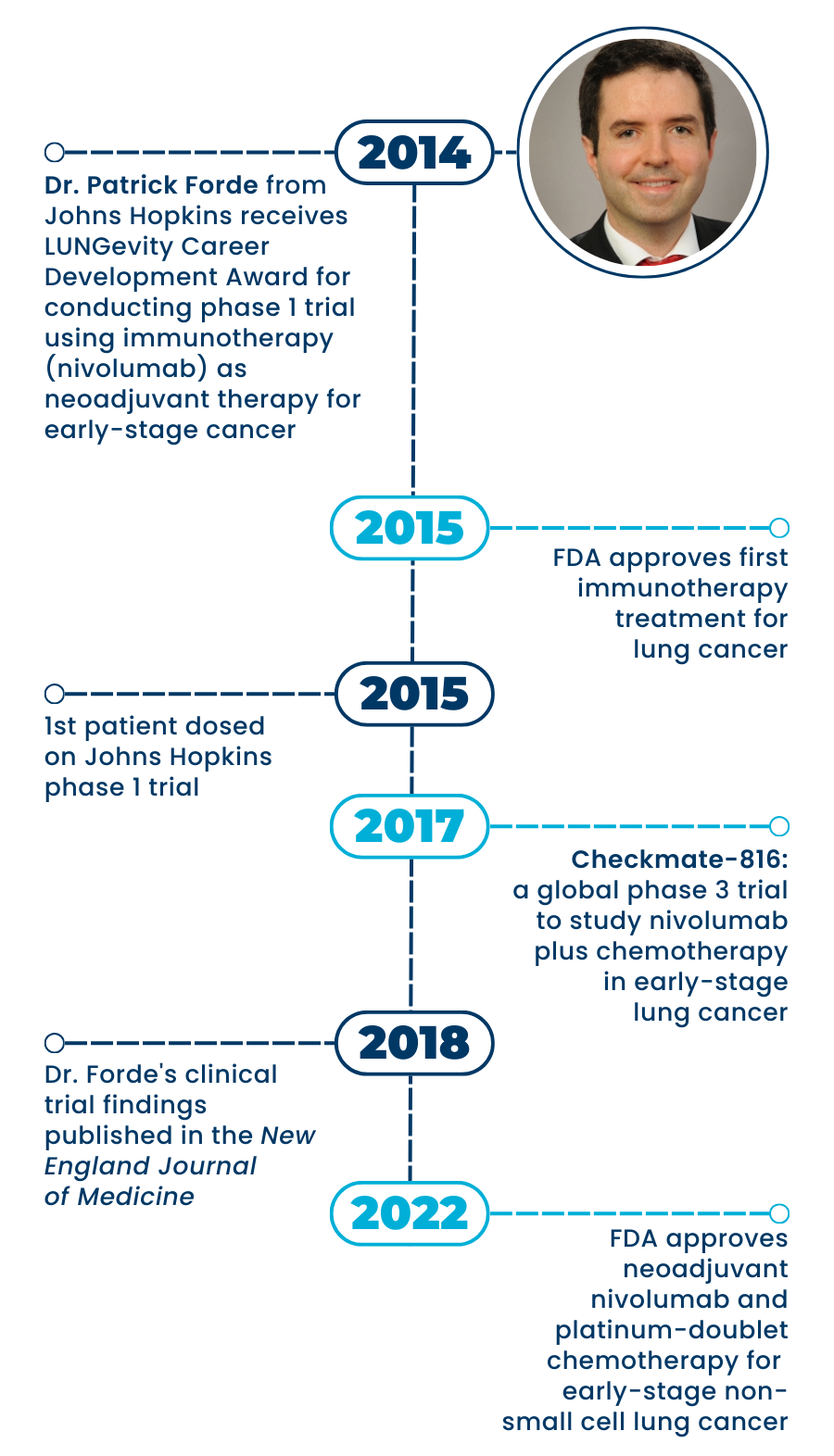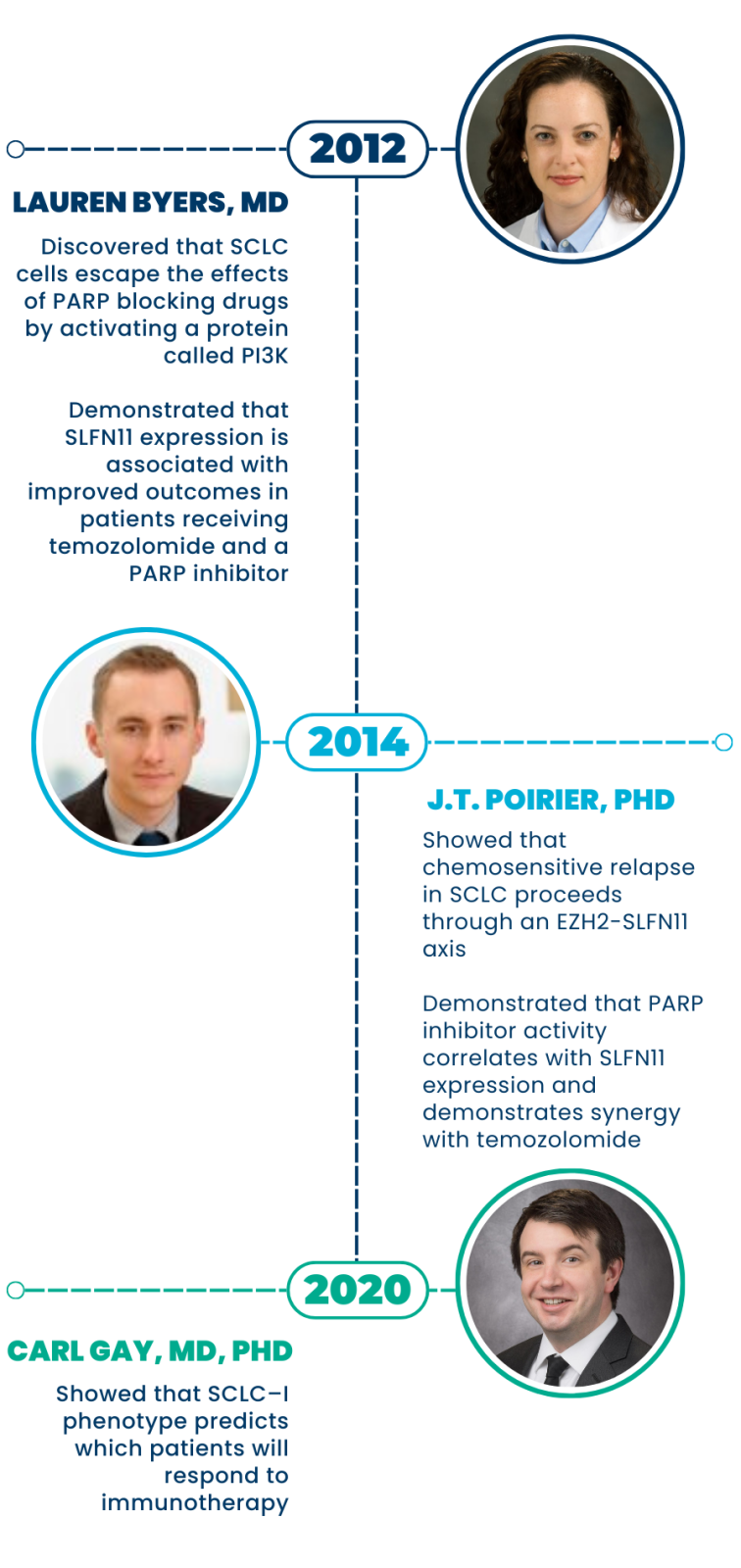We are committed to supporting translational research that is patient-centered, drives the science of lung cancer research, and generates future research funding.
Thanks to the generous support of our donors, we have invested $54 million into 191 research projects since 2002. The impact of our investment in research extends far beyond the original grant funding.

Return on Investment
For every dollar we invest in a LUNGevity awardee, that awardee receives an average of $10 in additional grant funding from other sources.
Our investment is in this way amplified 10 times, and the impactful work we support continues when our funding finishes.

Published Manuscripts
To date, our awardees have published more than 400 research articles in prestigious scientific journals on projects that were supported by funds from LUNGevity. Manuscripts are a measure of academic success and an important tool for sharing scientific research with other researchers, who can build on these findings to drive new research.

Impact on Other Cancers
Our investment often carries over to other types of cancer. Research funded by LUNGevity has so far influenced research into melanoma, colon, prostate, lung, breast, and brain cancers.

Workforce Development
Researchers must go where award money is. Our workforce development awards allow and encourage the outstanding researchers we fund to stay in the field and focus on lung cancer. Many of these have become leaders in their areas.
The LUNGevity research award has been a tremendous springboard for my work. I was recently awarded a larger grant to continue my research and evaluate the effects of new lung cancer therapies on women’s fertility.
—Narjust Florez, MD, 2022 Health Equity and Inclusiveness Junior Investigators Awardee

Direct Impact on Lung Cancer Treatment
LUNGevity-funded research projects have led to new treatments and discoveries. Among these are clinical trials that laid the groundwork for the use of nivolumab as a neoadjuvant treatment for early-stage NSCLC, as well as studies that help us better understand how to treat small cell lung cancer (SCLC).
LUNGevity Funding Leads to an Important New Indication for Nivolumab
Patrick Forde, MBBCh (MD) (an assistant professor at Johns Hopkins School of Medicine at the time of the award) received a LUNGevity Career Development Award in 2014.
The funding enabled him to conduct a small phase 1 clinical trial using an immunotherapy, nivolumab, as a neoadjuvant treatment (before surgery) in early-stage non-small cell lung cancer (NSCLC).
The clinical trial was successful, and results were published in the prestigious New England Journal of Medicine in 2018.
The phase 1 trial laid the foundation for a phase 3 clinical trial (Checkmate-816) that tested the combination of chemotherapy and immunotherapy as neoadjuvant treatment in early-stage NSCLC.
That trial was successful and led to the approval of nivolumab as a treatment option for early-stage NSCLC in 2022.
Dr. Forde is now a professor at the Trinity College of Medicine, Dublin, Ireland.

LUNGevity Awardees Discover How to Better Treat Small Cell Lung Cancer
Small cell lung cancer (SCLC)—found in 15% of people diagnosed with lung cancer—is a very aggressive form of lung cancer. It is highly chemo-sensitive, i.e. when treated with chemotherapy, the cancer rapidly shrinks. However, the cancer inevitably comes back after treatment.
It’s important to understand how SCLC escapes chemotherapy and more importantly, how it can be reversed. Currently, chemotherapy combined with immunotherapy is the first treatment for SCLC that has spread.
We are proud to have supported investigators whose research improved our understanding of how SCLC can be treated, which led to new clinical trials to treat SCLC.
- Lauren Byers, MD (2012 LUNGevity Career Development Award)
- J. T. Poirier, PhD (2014 LUNGevity Career Development Award)
- Carl Gay, MD, PhD (2020 LUNGevity Career Development Award)

